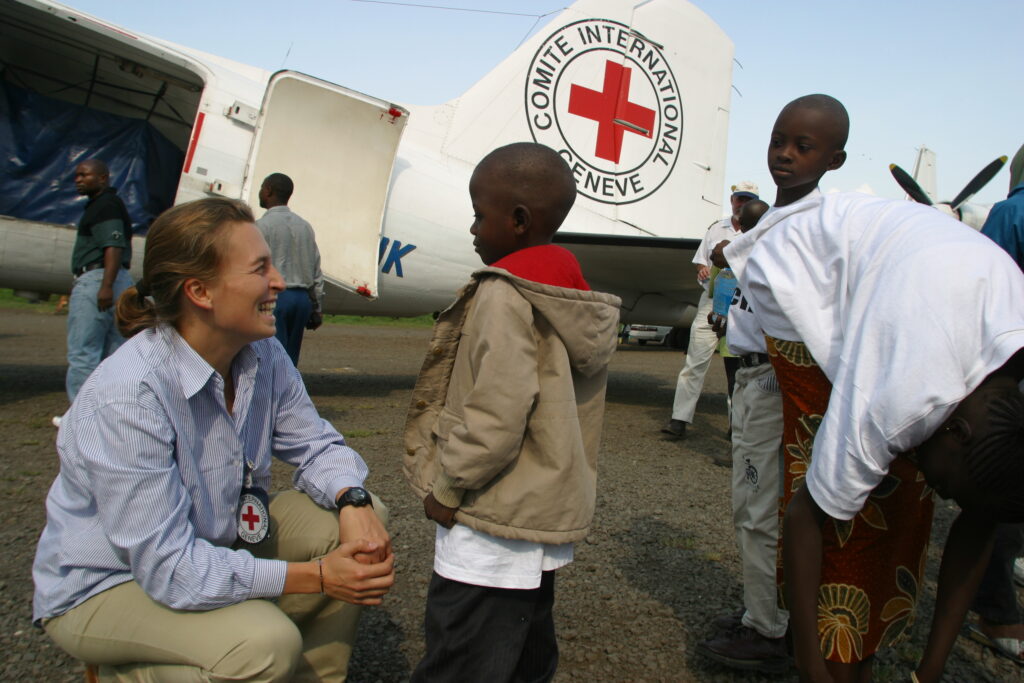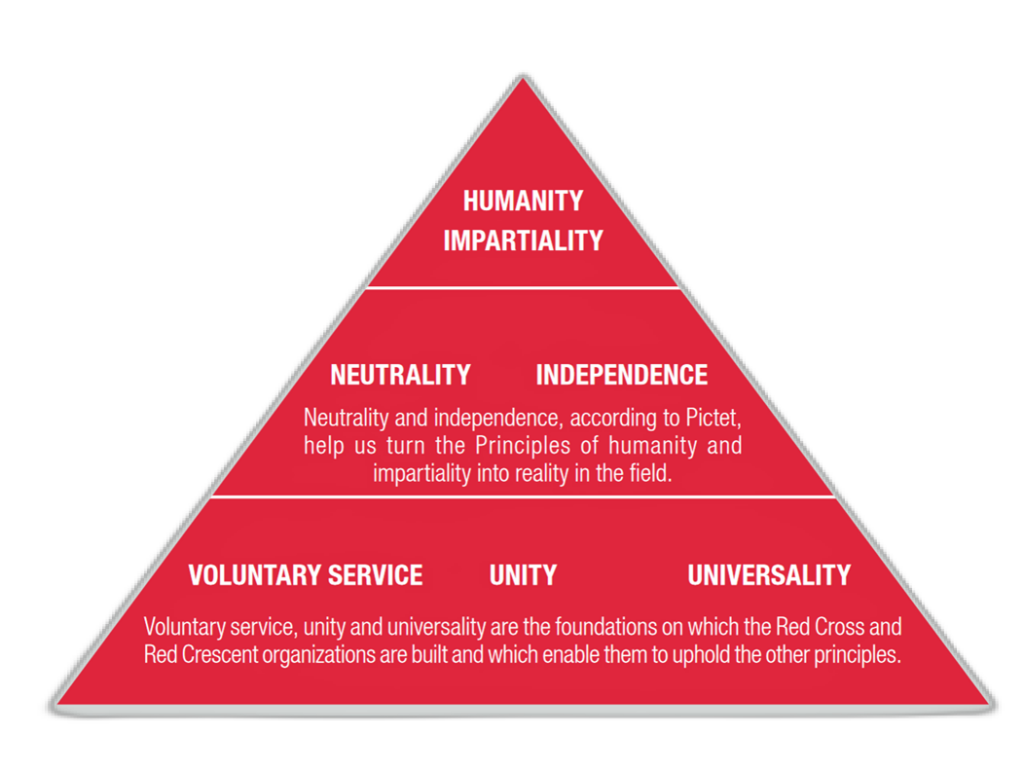
Many organisations involved in peace-making and peace-keeping place great stress on their neutrality and impartiality. They may define neutrality differently, or separate it from impartiality, but near-universally they agree that they must be perceived as neutral if they are to carry out their work effectively. This museum entry will examine the Red Cross movement’s commitment to neutrality and how it relates to their work for peace.
The International Red Cross and Crescent Movement is a global movement that aims to administer humanitarian aid to wherever it is needed most. Its work is divided between National Societies, whose work is coordinated by the International Federation of Red Cross and Red Crescent Societies, and the International Committee of the Red Cross, which coordinates work in conflict zones. The ICRC often conceives itself as a peace-making organisation: it promotes compliance with the Geneva Conventions, acts as a diplomatic backchannel between warring parties and facilitates hostage releases. Neutrality has been embedded in the movement since its founding and was formalised in their 1965 Fundamental Principles:
‘In order to continue to enjoy the confidence of all, the Movement may not take sides in hostilities or engage at any time in controversies of a political, racial, religious or ideological nature.’
International Red Cross and Red Crescent Movement’s Fundamental Principles
The trust of all parties in a conflict is crucial for all their work, from ensuring their hospitals are not targeted by airstrikes to being appointed to search Cuban-bound cargo ships to avoid nuclear escalation. The ICRC’s peace-making contributions expanded significantly in the 1960s, mostly through enabling discreet ‘humanitarian diplomacy‘ while taking great care not to be perceived as political. However, even when only incidental, their public humanitarian work, such as facilitating prison visits, directly contributes to peace: they inherently involve negotiation between sides, de-escalation and compromise.
Members of the Red Cross and Crescent movement visualise their commitment to impartiality in a similar way, though with a slightly different focus:
‘It makes no discrimination as to nationality, race, religious beliefs, class or political opinions. It endeavours to relieve the suffering of individuals, being guided solely by their needs, and to give priority to the most urgent cases of distress.’
International Red Cross and Red Crescent Movement’s Fundamental Principles

Jean Pictet, an international humanitarian lawyer who developed these principles, organised them hierarchically. Neutrality allows the Red Cross to put the ‘higher’ principles of impartiality and humanity into action. Through their neutrality, they are able to relieve suffering impartially, i.e., allocated purely according to need. They are mutually reinforcing – you cannot have one without the other.
Armed conflicts arouse high emotions, and often impartiality and neutrality can be seen as siding with an oppressor, criminals, or terrorists. For example, an office of the Ukrainian Red Cross was attacked with a Molotov cocktail due to their perceived collaboration in providing care for returning Russian soldiers. Some even called for a boycott of the ICRC for meeting with the Russian Minister of Foreign Affairs, Sergey Lavrov. The Red Cross’s confidentiality is an unspoken Fundamental Principle to prevent itself from being drawn into politicisation; but when news of the torture of prisoners in Abu Ghraib broke, the ICRC faced criticism for not telling the public. They responded that they would only publicly protest if their reports were misquoted or if humanitarian violations were not improved. Authorities are motivated to ameliorate conditions by a threat of public outrage, made credible by the ICRC’s shunning of publicity. This strict confidentiality does not always succeed in avoiding controversy, but it has – so far – avoided a total breakdown of trust.
For both incidental and intended peace-work, their reputation for neutrality, impartiality and confidentiality gives the Red Cross and Red Crescent Movement unrivalled access to all combatants and others caught up in the conflict, such as hostages. The confidence the ICRC has instilled over many decades depends on belligerents knowing that they will not take the opposing faction’s side but will operate as a neutral third party. Near-universally, warring parties have uniquely rejected the ‘You are either with us or against us’ mentality in their dealings with the Red Cross. This rejection – only because of their absolute neutrality – can often be the first step towards peace.
What do you think?
- Is there a difference between impartiality and neutrality?
- Should more states and organisations be neutral? Is there a point when a state or organisation ought to intervene? When is it better or more productive to ‘take sides’?
- What are the real-world costs and benefits of impartiality, for individuals as well as fighting factions/states?
- How do organisations and countries begin to be perceived as neutral? How can they begin to be perceived as partisan?
- What factors are essential in ensuring that a peace-keeping/peace-making organisation can be trusted by all parties?
If you enjoyed this item in our museum…
You might also enjoy Peace in Faith and Practice: Visualising Peace as Relief from Suffering, The Place of Principled Impartiality in Peace Work and Observation as a Tool for Peace in Palestine and Israel, as well as the following from the ICRC “Why are you Silent?”, Neutrality as a Fundamental Principle of the Red Cross, The Fundamental Principles of the International Red Cross and Red Crescent Movement : ethics and tools for humanitarian action and Crisis of Confidence.
Robert Rayner, November 2023.